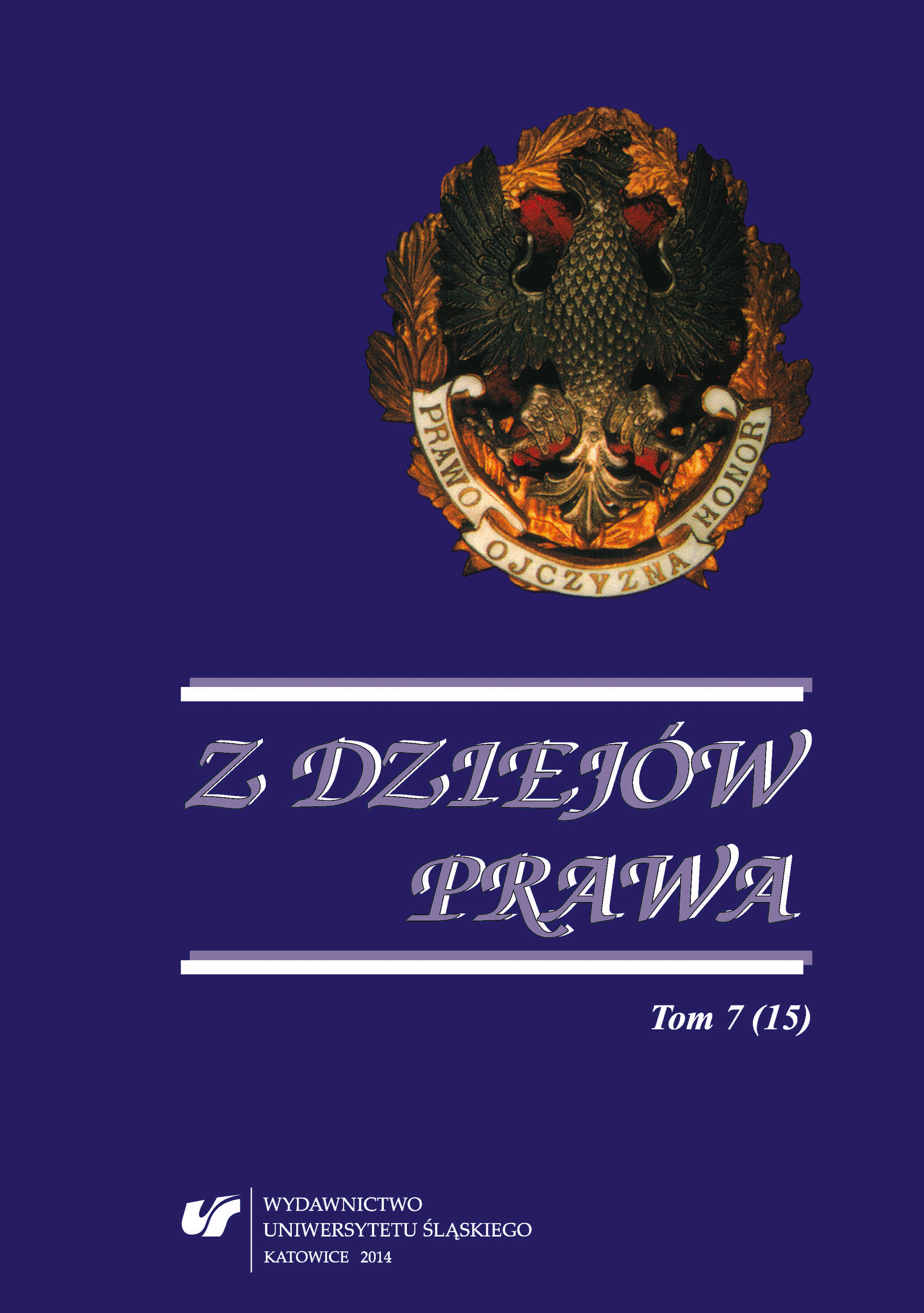Ewolucja instytucji oskarżyciela posiłkowego w polskich kodyfikacjach karno-procesowych (1928—1997)
Evolution of the Institution of the Auxiliary Prosecutor in the Polish Law of Criminal Proceedings (1928—1997)
Author(s): Józef KoredczukSubject(s): Law, Constitution, Jurisprudence
Published by: Wydawnictwo Uniwersytetu Śląskiego
Summary/Abstract: In modern criminal proceedings, one of the functions which can be performed by the plaintiff (the victim) is the function of the auxiliary prosecutor. This institution has been known to all 20th-century Polish laws of criminal proceedings (1928, 1969, and 1997). The particular issues regarding the auxiliary prosecutor regulated in those codifications focused primarily on: 1) when and on what conditions the auxiliary prosecutor could join the criminal proceedings; 2) who decided on allowing the auxiliary prosecutor into the proceedings; 3) what was the legal status of the auxiliary prosecutor in the proceedings; 4) what was the auxiliary prosecutor’s relationship to the public prosecutor. The institution of the auxiliary prosecutor, introduced in the Rules of Criminal Procedure of 1928, became a subject of heated criticism. It was then promptly abolished in the amendment to the Rules of 1932. Its abolishment was justified by the claims that it had proved to be ineffectual in practical application. This decision was, however, partly rectified in the amendment by introducing a chapter entitled “The Victim” into the code. The Rules of Criminal Procedure of 1969 re-introduced the institution of the auxiliary prosecutor, but only in the capacity of an accessory auxiliary prosecutor. This change had, however, no real effect on the legal practice as well as the attitudes of the authorities towards the rights of the victim in the court proceedings. It was not until the Rules of Criminal Procedure of 1997 that the auxiliary prosecutor has become a rightful party in litigation, an independent subject—a subject whose participation in the criminal proceedings can contribute to the increase in the contradictoriness of the proceedings, the odds of uncovering material truth as well as citizens’ trust in the judiciary.
Journal: Z Dziejów Prawa
- Issue Year: 15/2014
- Issue No: 7
- Page Range: 187-199
- Page Count: 13

